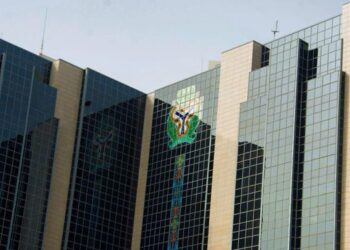The Manufacturing Purchasing Managers’ Index (PMI), for the month of December, witnessed a contraction, as it stood at 49.6 index points. This was disclosed in the PMI report, recently released by the Central Bank of Nigeria (CBN).
According to the report, the manufacturing sector relapsed from 50.2 index points recorded in the month of November 2020. It however, gained marginally compared to 49.4 index points recorded in October 2020.
READ: CBN report projects greater employment prospects in 2021
The report also disclosed that out of the 14 surveyed subsectors, 4 subsectors reported expansion (above 50% threshold) in the review month in the following order:
- Transportation equipment
- Nonmetallic mineral products
- Paper products
- Food, beverage & tobacco products.
However, textile, apparel, leather, and footwear subsector remained stationary while the remaining 9 subsectors reported contractions in the following order:
- Primary metal,
- Petroleum & coal products
- Cement
- Electrical equipment
- Fabricated metal products
- Printing & related support activities
- Plastics & rubber products
- Chemical & pharmaceutical products and
- Furniture & related products
For context read: Nigeria’s manufacturing sector contracts for 4th consecutive month – CBN

Non-manufacturing PMI
PMI for the non-manufacturing sector stood at 45.7 points in the month of December 2020, indicating contraction in Non-manufacturing PMI for the ninth consecutive months.
Of the 17 surveyed sub-sectors, 5 subsectors reported growth in the following order:
- Arts, Entertainment & Recreation
- Water supply, sewage & waste management
- Electricity, gas, steam & air conditioning supply
- Educational services and Professional
- Scientific & technical services
READ: These industries appear to have returned to pre-pandemic levels
While twelve subsectors reported declines in the following order: Management of companies; Utilities; Transportation & warehousing; Real estate rental & leasing; Construction; Finance & insurance; Agriculture; Wholesale/Retail trade; Information & communication; Repair, Maintenance/Washing Of Motor Vehicles; Health care & social assistance and Accommodation & food services.
What you need to know
- In December 2020, suppliers’ delivery time was faster, new orders and production level increased while employment level and raw materials inventories contracted.
- The business activity index for the non-manufacturing sector contracted at 46.9 points from the expansionary level recorded in the month of November 2020.
- The employment level Index for the non-manufacturing sector in the month of December 2020 stood at 45.1 points, indicating contraction in employment level for the ninth consecutive months.
READ: COVID-19: CACOVID spent N43.27 billion to support 3 key priorities – CBN
What this means
PMI is a survey that is conducted by the Statistics Department of the Central Bank of Nigeria and shows the changes in the level of business activities in the current month compared with the preceding month.
- For each of the indicators measured, this report shows the diffusion index of the responses, which is computed as the percentage of responses with positive change plus half of the percentage of those reporting no change, except for supplier delivery time, which is computed as the percentage of responses with negative change plus half of the percentage of those reporting no change.
- A composite PMI above 50 points indicates that the manufacturing/non-manufacturing economy is generally expanding. 50 points indicate that there is no change, while a PMI below 50 points indicates that it is generally contracting.
- A contraction in manufacturing activities means that the sector is yet to recover from the covid induced downturn which crippled the manufacturing activities for 6 consecutive months before recording slight expansion in the previous month.


















